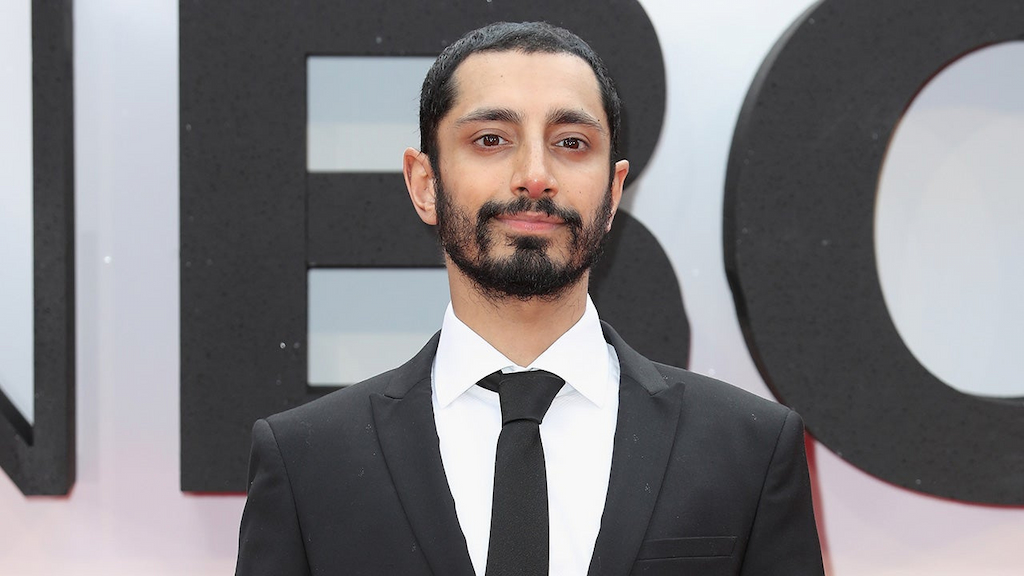The 33-year-old British star details being 'attacked' and illegally detained in a new book.
The Night Of actor Riz Ahmed penned an emotional essay on the effects that race have had on his career. In an excerpt of the book, The Good Immigrant, printed by The Guardian, Ahmed recounts several instances of being racially profiled in everyday life, and in his acting roles.
The 33-year-old London native describes race as a "necklace" that he hoped to loosen over time. "As a minority, no sooner do you learn to polish and cherish one chip on your shoulder than it's taken off you and swapped for another," Ahmed writes. "The jewelry of your struggles is forever on loan, like the Koh-i-Noor diamond in the crown jewels. You are intermittently handed a necklace of labels to hang around your neck, neither of your choosing nor making, both constricting and decorative."
Beginning his acting career after 9/11, Ahmed recounted a desire to break through racial typecasting that finds many Asian and Arab actors confined to stereotypical acting gigs as terrorists, or cab drivers. He categorizes the aforementioned roles as "stage one" of the "two-dimensional stereotype" in Hollywood.
"Part of the reason I became an actor was the promise that I might be able to help stretch these necklaces, and that the teenage version of myself might breathe a little easier as a result," he explains. "If the films I re-enacted as a kid could humanize mutants and aliens, maybe there was hope for us. But portrayals of ethnic minorities worked in stages, I realized, so I’d have to strap in for a long ride."
Ahmed also breaks down what he calls the stages that minority actors go through to break out of racial boxes in acting. Stage two, he writes is the "subversive portrayal, taking place on 'ethnic' terrain but aiming to challenge existing stereotypes" and lastly, "stage three" or "the Promised Land," where race isn’t a factor in the role.
"There, I am not a terror suspect, nor a victim of forced marriage," he writes. "There, my name might even be Dave. In this place, there is no necklace."
The actor then details an emotional experience of being “attacked” at an airport after shooting his debut film The Road to Guantanamo. Ahmed, who is a British Pakistani Muslim, says he was detained at an airport, after winning a top honors at the Berlin Film Festival.
"Returning to the glamour of Luton Airport after our festival win, ironically named British intelligence officers frogmarched me to an unmarked room where they insulted, threatened, and then attacked me," he recalls, adding that the officer questioned if Ahmed became an actor to "further" terroristic agenda.
"It turned out that what those special branch officers did was illegal," Ahmed notes. "I was asked by activist lawyers if I wanted to sue, but instead I wrote an account of the incident and sent it to a few journalists. A story about the illegal detention of the actors from a film about illegal detention turned out to be too good to ignore. I was glad to shed some light on this depressing state of affairs."
In the end, Ahmed shared his story with the media and would go on to move from the U.K. to America, where he was still racially profiled, and seemingly became numb to the experience of “random selection” in airports, that he likened to an audition of sorts.
"As I’ve travelled more, I’ve also done more film work, increasing the chances of being recognized by the young Asian staff at Heathrow [Airport in London]," he explained. "I have had my films quoted back at me by someone rifling through my underpants, and been asked for selfies by someone swabbing me for explosives."
Ahmed is far from the only actor to speak out about racism in Hollywood and beyond. Earlier in the year, the Oscars faced backlash for not recognizing actors of color, an issue that persists within the entertainment industry.
See what the Academy of Motion Pictures is doing to close the Hollywood diversity gap in the video below.
